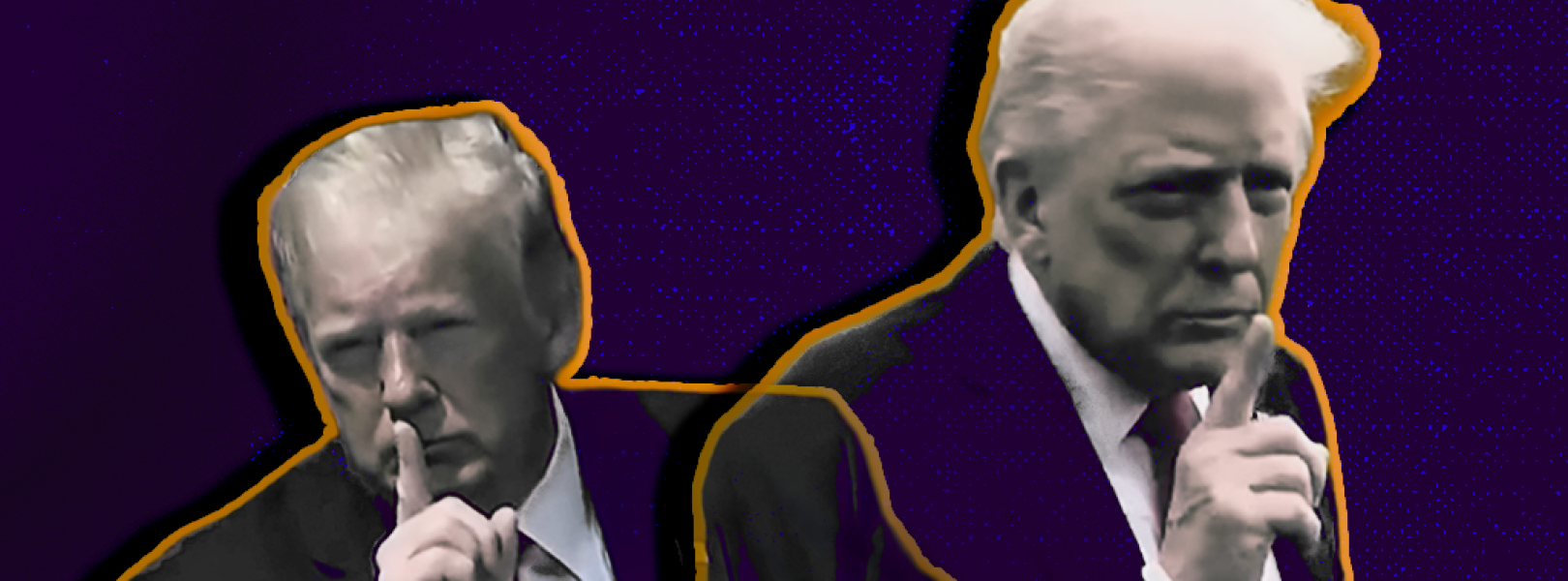The greatest threat that free speech currently faces in this country is that the president doesn’t believe in it. Donald Trump treats criticism of himself, his administration, and his policies as fundamentally illegitimate, and he is eager to use government power to curtail it. When Trump’s allies downplay or spin the anti-speech activity flowing downstream from his whims, they engage in willful ignorance or deliberate deception.
Trump responded to Jimmy Kimmel’s Tuesday night return to ABC’s airwaves following a suspension his administration helped bring about by once again threatening the network with retribution. After claiming that ABC had reversed a decision (apparently announced only privately to the White House) that Jimmy Kimmel Live! “was cancelled,” the president accused Kimmel of being an “arm of the DNC,” which he alleged makes Kimmel’s show “a major Illegal Campaign Contribution.” He went on to say: “I think we’re going to test ABC out on this. Let’s see how we do.”
The president’s comment demolishes the pathetic argument some elements of the right have pushed over the last week.
According to Fox News stars, Republican members of Congress, and Federal Communications Commission Chair Brendan Carr, ABC’s decision to take Kimmel off the air was purely a “business decision.” In their telling, it was simply a quirky coincidence that the move came just hours after Carr said that ABC’s affiliates and parent company Disney could “do this the easy way or the hard way” and either “take action, frankly, on Kimmel, or there's going to be additional work for the FCC ahead” — a credible threat given his history of leveraging regulatory power for the right’s benefit.
Even Senate Republicans who criticized the administration’s clear violation of the First Amendment focused their attention solely on Carr while leaving a Trump-shaped hole in their arguments.
Trump’s post, however, shows that Carr’s actions were totally in keeping with the president’s desire to use state power to try to impose censorship on media outlets. Trump is not concerned that his administration was violating the First Amendment by trying to force his critics off the air — he is concerned that it didn’t work, and he is making it abundantly clear to everyone who works for him that he wants them to keep trying.
That position is hardly a new revelation. Denunciations of critical media coverage are a hallmark of Trump’s politics, and he has frequently used personal lawsuits and government authority to try to strong-arm outlets into submission.
We saw a similar inability to grapple with Trump’s closely held and consistent position that his administration should be able to punish critics for their speech earlier this month. After Attorney General Pam Bondi declared that the Justice Department would “absolutely target you, go after you, if you are targeting anyone with hate speech,” the floodgates opened. Commentators across the right condemned her comments as an affront to free speech principles. They wrote that she “fails to understand the basics of the U.S. Constitution” (the editors of National Review), lacks “a basic understanding of the First Amendment” (The Wall Street Journal editorial board), and should be fired (The Daily Wire’s Matt Walsh). The response was so furious and widespread that Bondi was forced to clarify her remarks.
That’s commendable as far as it goes. But it’s not like Bondi is some sort of wild outlier in a Trump administration otherwise committed to free speech. When an ABC News reporter asked the president about Bondi’s remarks the following morning, he didn’t even try to distance himself from them. Instead, he told the reporter, “She’ll probably go after people like you, because you treat me so unfairly, it’s hate.”
Trump’s remarks once again give the game away — he views potential “hate speech” prosecutions as an extension of his desire for his administration to punish his critics and media outlets that publish or air them. But right-wing criticism of Trump’s comments was far more muted than the backlash Bondi faced.
Perhaps they think that it’s much more important that an attorney general support the Constitution’s protections than that the president do so. I think it’s more likely they understand the president’s position is a threat to the First Amendment, but also recognize that it is impossible to remain a conservative in good standing while voicing such concerns about the president and have simply decided not to talk about it.
Meanwhile, the president will continue his administration’s efforts to punish critics and coerce media outlets until he can turn on his TV, flip through the channels, and see nothing but Fox-style propaganda on every network.
